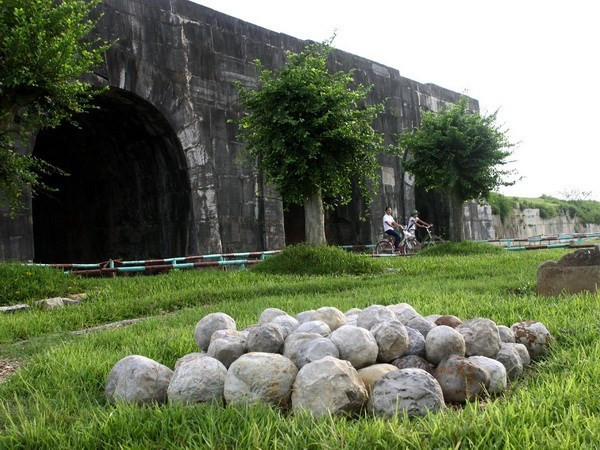Vietnam strives to preserve UNESCO-recognized heritage
Ms. Katherine Muller-Marine, Chief Representative of UNESCO in Vietnam, emphasized that Vietnam has many tangible and intangible heritages that have been recognized by UNESCO as world heritages. In recent times, the Vietnamese Government has made great efforts to preserve and promote the values of heritages recognized by UNESCO.
 |
| Ho Dynasty Citadel - a UNESCO-recognized heritage of Vietnam. Photo: VNA |
Speaking at the Workshop on UNESCO International Conventions, organized by the UNESCO Office in Hanoi and the Ministry of Information and Communications on February 21, Ms. Katherin said that Vietnam is also facing major challenges in the field of heritage conservation due to accompanying economic problems such as tourism development...
According to her, heritage protection needs to be carried out even before it is recognized and must continue to ensure sustainable development. Heritage must be protected by respecting its naturalness, authenticity, and integrity... To do that, knowledge, understanding, and cooperation with experts are needed to restore, renovate, or protect heritage in the best possible way as it is.
The workshop is an opportunity to support journalists and media workers to update and systematize basic issues related to UNESCO international conventions such as the Convention on World Cultural and Natural Heritage, the Convention on the Safeguarding of Intangible Cultural Heritage, etc. Thereby, the program provides more information and enhances understanding of issues related to heritage and UNESCO international conventions, helping to improve the quality of information and increase the dissemination of information in the social community.
Delegates at the workshop agreed that the role of the media is very important in sharing information, guiding public opinion and orienting community awareness on issues related to tangible and intangible heritage.
Delegates also exchanged information on the key orientations of the United Nations' cultural and development issues; the 1972 Convention on the World Cultural and Natural Heritage; the Memory of the World Programme; the 2001 Convention on the Protection of Underwater Cultural Heritage; and the 2003 Convention on the Protection of Intangible Cultural Heritage.
According to Vietnam+






